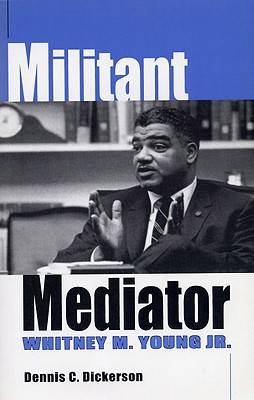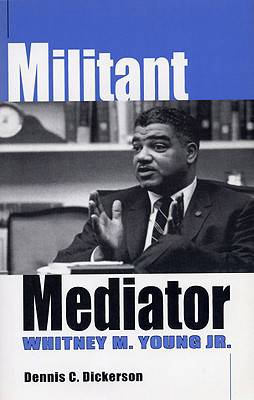
- Retrait gratuit dans votre magasin Club
- 7.000.000 titres dans notre catalogue
- Payer en toute sécurité
- Toujours un magasin près de chez vous
- Retrait gratuit dans votre magasin Club
- 7.000.0000 titres dans notre catalogue
- Payer en toute sécurité
- Toujours un magasin près de chez vous
Description
During the turbulent 1960s, civil rights leader Whitney M. Young Jr. devised a new and effective strategy to achieve equality for African Americans. Young blended interracial mediation with direct protest, demonstrating that these methods pursued together were the best tactics for achieving social, economic, and political change.
Militant Mediator is a powerful reassessment of this key and controversial figure in the civil rights movement. It is the first biography to explore in depth the influence Young's father, a civil rights leader in Kentucky, had on his son. Dickerson traces Young's swift rise to national prominence as a leader who could bridge the concerns of deprived blacks and powerful whites and mobilize the resources of the white America to battle the poverty and discrimination at the core of racial inequality. Alone among his civil rights colleagues -- Martin Luther King Jr., Roy Wilkins, James Farmer, John Lewis, and James Forman -- Young built support from black and white constituencies.
As a National Urban League official in the Midwest and as a dean of the School of Social Work at Atlanta University during the 1940s and 1950s, Young developed a strategy of mediation and put it to work on a national level upon becoming the executive director of the League in 1961. Though he worked with powerful whites, Young also drew support from middle-and working-class blacks from religious, fraternal, civil rights, and educational organizations. As he navigated this middle ground, though, Young came under fire from both black nationalists and white conservatives.
Spécifications
Parties prenantes
- Auteur(s) :
- Editeur:
Contenu
- Nombre de pages :
- 384
- Langue:
- Anglais
Caractéristiques
- EAN:
- 9780813190815
- Date de parution :
- 01-02-04
- Format:
- Livre broché
- Format numérique:
- Trade paperback (VS)
- Dimensions :
- 167 mm x 227 mm
- Poids :
- 635 g

Les avis
Nous publions uniquement les avis qui respectent les conditions requises. Consultez nos conditions pour les avis.






